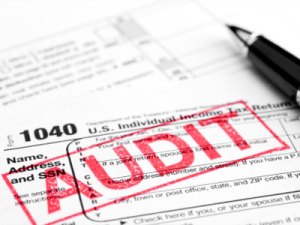Join our team of experienced tax professionals at R&G Brenner! We're hiring CPAs, EAs, office managers, assistants, and building maintenance staff. Apply now for exciting opportunities in tax and accounting services.
3 Reasons Your Tax Return Might be Audited

There’s one dreaded word all taxpayers hate: audit. However, learning a little bit more about what could trigger an audit may help alleviate some of the stress associated with the process. While the prospect of an audit can seem daunting, it’s not as bad as you may think. In fact, less than one percent of all individual tax returns are audited by the IRS each year, and the audit rate could fall even lower due to shortages of personnel and funding. There are, however, a few common reasons why an individual may be selected to undergo an audit.
Claiming A Large Income
Expect to increase your odds of an audit if you suddenly start making a lot more money. It’s simple really: if your reported income skyrockets, that sends up a red flag at the IRS. Those with incomes higher than $200,000 experience an audit rate of 3.26 percent, equal to about one out of every 30 returns and three times the average for all taxpayers. If you report more than $1 million in income, your odds increase to a one-in-nine chance of an audited return. That being said, it’s certainly not illegal to make more money. In fact, it’s the American dream. Just be aware this could up your chances of being noticed by the IRS.
Failing to Disclose Taxable Income
Because the IRS receives copies of your W-2s and 1099s and is aware of your income, it’s imperative to report all of it as completely as possible. If your reportable claims of income don’t match your actual income, this usually triggers an information request from the IRS. While this technically is not an “Audit” per se, getting any document from the IRS certainly seems like one. Sometimes mistakes are made; not only on the taxpayers part but also the employer. Sometimes, you may receive a 1099 that displays income that’s not yours, or perhaps a corrected 1099 was issued that was not reported on your return but was reported to the IRS. You can file an amended return with the IRS to correct these types of issues.
Taking Large Deductions for Charitable Contributions
Regardless of the legitimately of your claimed charitable deductions, if it’s over $500, the IRS will take notice; especially if your deductions are abnormally large compared to your annual income. The IRS is well aware how much people in your income bracket usually donate—if the amount you report is outside those parameters, you may be hearing from the IRS. Be prepared to show proof of appraisal for donations of valuable property, or file Form 8283 for non-cash donations totaling more than $500. Listing several charitable donations with deductions more than three percent of your income may prompt the IRS to ask for additional documentation.
The bottom line is to be sure that you have documentation for all your deductions. Don’t claim more deductions than you can legitimately prove. The IRS calculates the discriminant function (DIF) for each tax return using highly evolved software. If you score high on this DIF, your chances of an audit rise, especially if the analysis finds a high ratio of deductions to income, whether that involves medical expenses, mortgage interest or charitable deductions. A good rule of thumb is to treat every filed return as though it could be audited. An R&G Brenner tax professional is available to help you with any questions you may have, so rely on him or her to provide you with the help you need.









